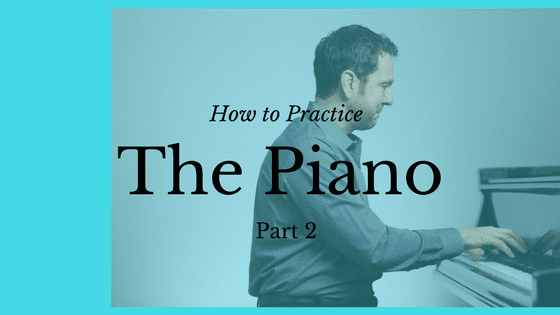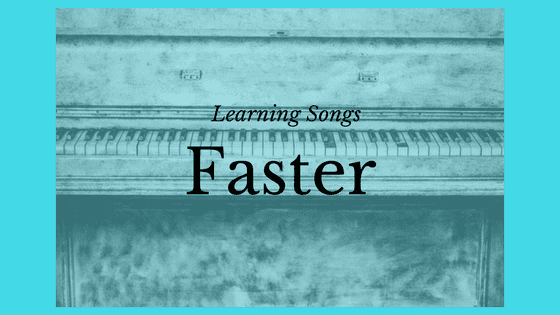In this multi-part article, I want to give you some pointers on how to practice the piano. Practicing can be fun and when you have clear goals defined, I think you’ll find that it is satisfying and enjoyable!
Goals keep you focused
If you sit down to practice without a goal, you will most likely ‘wander’ through your practice routine without a clear path. I think we all understand what it means to have a goal. I’m sure you’ve all been asked that age-old question “Where do you see yourself in 5 years?” Questions like this often seem more like dreaming than a serious question. Let’s face it, who really knows where we are going to be in 5 years?
So, it is important to keep our goals based in reality. Keep your piano goals simple and short. For instance, here is what I would consider a ‘pie-in-the-sky’ or un-realistic goal:
“I want to learn 100 songs in a month.”
or
“I want to learn how to play jazz piano this year.”
With goals like that you are destined to fail. So…how do we create realistic goals?
- Break your main goal into smaller goals
- Be realistic with your time
- Be happy with small gains!
Let’s go through this list point-by-point.
1) If we take the goal of learning jazz piano and break it into smaller goals, we might come up with:
- Repertoire (songs)
- Knowing scales
- Knowing chords
- Mastering rhythms
- Active listening
2) If you set out to practice 2 hours a day, but you work a 9-5 job and have kids…well…you know. It’s most likely impossible! Remember this very important fact: It is not about time. It’s about quality. Practicing for 30 minutes per day can produce power results if you are focused and clear about what you should practice. So, practice less…but more focus.
3) I don’t want to bring you down, but we often make goals that are just unrealistic. I’ve made them myself and I know you probably have too. I’m talking about goals like “I’m going to workout 5-days-a-week starting in January.” We pull ourselves to the gym on Monday and come Friday we are rationalizing why we have stopped. We end up feeling worse about ourselves then when we started and are filled with a variety of negative emotions.
There is a solution: make your goal so easy that you are likely to succeed.
So, instead of ‘learning 100 songs in a month’ or ‘learning jazz piano this year’ I suggest that you shorten your goals and expectations. It is better to learn 5 songs in a year, than attempt to learn 100 only to come up short. Or, I’d rather a student learn all 12 Major scales in 12 months than try to become a jazz pianist…a goal that takes a lifetime to achieve.
O.K. I think by now you understand what I mean when I say ‘goals.’ Now, let’s focus on a mistake that almost every one of my students, myself and practically every other musician in the world makes…
Playing the piano is NOT practicing the piano
I honestly can’t tell you how many times I have heard from students that they spent 30 minutes playing songs that they know only to think they were practicing. Or, have you done this?
- Sat down at the piano
- Started playing a song you know
- Thought of it as a “warmup?”
Yep, we’ve all done it. Sat down for 20 minutes, played stuff we already knew and thought we were practicing. Well…we weren’t. We were playing.
You should sound bad when you practice!
Let me explain. If you’re like most, when you sit to practice piano, you’re time is most likely limited. If you start your practice session by playing the songs that you already know, you are not working on anything new. You’re basically just reviewing your repertoire. If the phone rings, or you get interrupted, it is easy to step away, only to never return.
However, if you get right into some focused piano practice immediately when you sit down, you can feel more confident that what you are doing is improving your playing.
In the next segment of the piano practice series, I will cover a new practice routine that I have created to help organize your piano practice. I like to break practice into weekly goals, piano technique, songs, review and theory. This allows us to basically break up our practice routine into three parts:
- Technique – getting faster, more accurate piano fingers
- Focus – zeroing in on the important concepts for this week’s practice
- Review – keeping what we have already learned in our memory.
I’ll go over those concepts and more in the next article. I’ll also tell you about getting faster in my Go for speed! section along with how to practice away from the piano.
In the meantime, try to answer this question: “What are my piano goals for this week, month, year?”
Till next month…keep up your practice!

